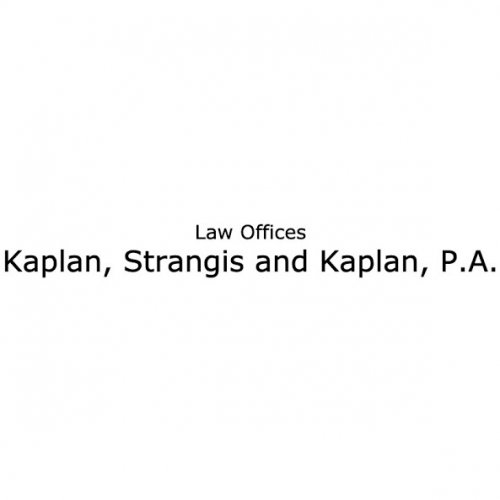Best Corporate Governance Lawyers in Minneapolis
Share your needs with us, get contacted by law firms.
Free. Takes 2 min.
List of the best lawyers in Minneapolis, United States
About Corporate Governance Law in Minneapolis, United States
Corporate governance refers to the system of rules, practices, and processes through which companies are directed and controlled. In Minneapolis, United States, corporate governance laws ensure that businesses operate with transparency, accountability, and responsibility toward shareholders, stakeholders, and the wider community. These regulations define the roles and responsibilities of company directors, executives, and boards, and help prevent conflicts of interest, fraud, or mismanagement within organizations of all sizes. Minneapolis, as part of Minnesota, follows both state corporate law and federal regulations to facilitate ethical and compliant business activities.
Why You May Need a Lawyer
Seeking legal advice in corporate governance is essential in a variety of situations. You may require a lawyer if you are forming a new corporation and want to ensure compliance with Minnesota and federal requirements, if you are dealing with shareholder disputes or disagreements among board members, or if your business is facing an investigation by regulators. A corporate governance lawyer can also help with drafting bylaws, creating governance policies, conducting internal investigations, and responding to whistleblower complaints. Legal professionals help navigate complex regulatory requirements and protect your organization from liability.
Local Laws Overview
Corporate governance in Minneapolis is governed by a combination of Minnesota state statutes, such as the Minnesota Business Corporation Act, and federal laws like the Sarbanes-Oxley Act. Key aspects relevant to Minneapolis businesses include requirements for annual meetings, duties and liabilities of directors and officers, compliance with disclosure obligations, audit committee requirements for certain companies, and best practices for avoiding conflicts of interest. Nonprofits and closely-held corporations may also have additional obligations under Minnesota law. Being aware of these rules is crucial in maintaining continual compliance and protecting your business interests.
Frequently Asked Questions
What does corporate governance mean in Minneapolis?
Corporate governance refers to the system by which companies are directed, operated, and controlled in accordance with laws and ethical standards applicable in Minneapolis and the broader United States.
Who is responsible for corporate governance in a corporation?
The board of directors carries the primary responsibility, along with executive officers. Shareholders also play a role through voting rights and engagement with the board.
Are there specific laws that govern corporate governance in Minneapolis?
Yes. The Minnesota Business Corporation Act and relevant federal statutes such as the Sarbanes-Oxley Act set out key requirements. Companies may also be subject to rules from the Securities and Exchange Commission.
What are the duties of directors and officers under Minnesota law?
Directors and officers owe fiduciary duties of care, loyalty, and good faith. They must act in the best interests of the corporation and its shareholders, avoid conflicts of interest, and disclose relevant information.
How often must corporations hold board and shareholder meetings?
Minnesota law requires annual shareholder meetings and regular board meetings as outlined in corporate bylaws.
Do nonprofits have to follow corporate governance rules?
Yes. Nonprofits in Minneapolis must comply with state statutes, their own bylaws, and any relevant federal requirements. Good governance helps retain tax-exempt status and public trust.
What are typical issues that require legal help in corporate governance?
Typical issues include compliance violations, shareholder or member disputes, executive misconduct, conflicts of interest, failed mergers or acquisitions, and breaches of fiduciary duty.
Is it required to have a written corporate governance policy?
While not always legally required for all businesses, it is a best practice and often required for larger, public, or regulated companies to have clear, written governance policies.
How can I prevent conflicts of interest in my Minneapolis business?
Establish comprehensive conflict of interest policies, require disclosures from directors and officers, and conduct regular training and board evaluations to reduce the risk of problematic conflicts.
What happens if my business violates corporate governance rules?
Violations can lead to regulatory investigations, fines, lawsuits from shareholders or employees, damage to reputation, or even dissolution of the business in severe cases.
Additional Resources
Consider reaching out to the Minnesota Secretary of State for business registration and compliance information. The Minnesota State Bar Association offers referrals and informational resources on corporate governance. The U.S. Securities and Exchange Commission provides guidance for public companies and federal compliance, while the Hennepin County Law Library can assist with research. Local universities, such as the University of Minnesota Law School, may also have clinics or research centers focusing on business law.
Next Steps
If you need assistance with corporate governance, start by gathering relevant documents such as your company’s bylaws, articles of incorporation, board meeting minutes, and records of policies. Identify any current or potential legal issues and outline your questions. Then, consult with a qualified corporate governance lawyer in Minneapolis who has experience with Minnesota and federal corporate law. Legal professionals can help analyze your situation, ensure compliance, and develop tailored governance strategies. If possible, schedule a consultation to discuss your needs and the best way forward for your business.
Lawzana helps you find the best lawyers and law firms in Minneapolis through a curated and pre-screened list of qualified legal professionals. Our platform offers rankings and detailed profiles of attorneys and law firms, allowing you to compare based on practice areas, including Corporate Governance, experience, and client feedback.
Each profile includes a description of the firm's areas of practice, client reviews, team members and partners, year of establishment, spoken languages, office locations, contact information, social media presence, and any published articles or resources. Most firms on our platform speak English and are experienced in both local and international legal matters.
Get a quote from top-rated law firms in Minneapolis, United States — quickly, securely, and without unnecessary hassle.
Disclaimer:
The information provided on this page is for general informational purposes only and does not constitute legal advice. While we strive to ensure the accuracy and relevance of the content, legal information may change over time, and interpretations of the law can vary. You should always consult with a qualified legal professional for advice specific to your situation.
We disclaim all liability for actions taken or not taken based on the content of this page. If you believe any information is incorrect or outdated, please contact us, and we will review and update it where appropriate.














